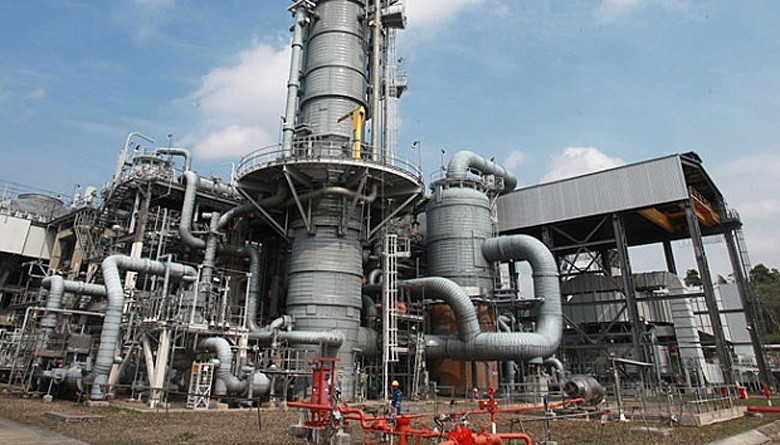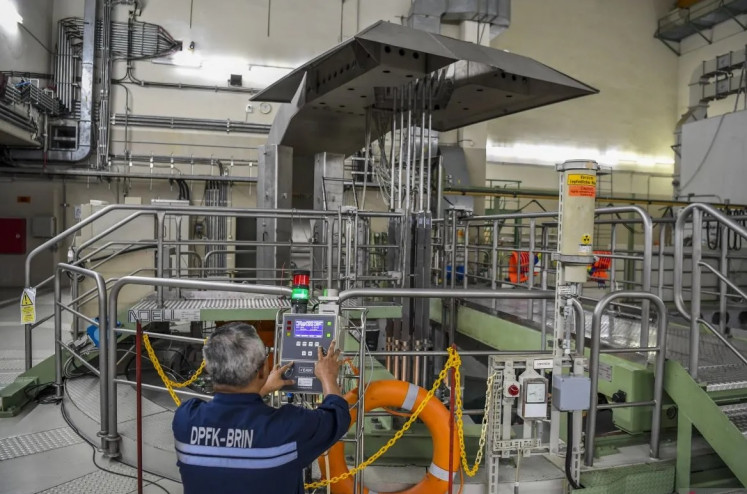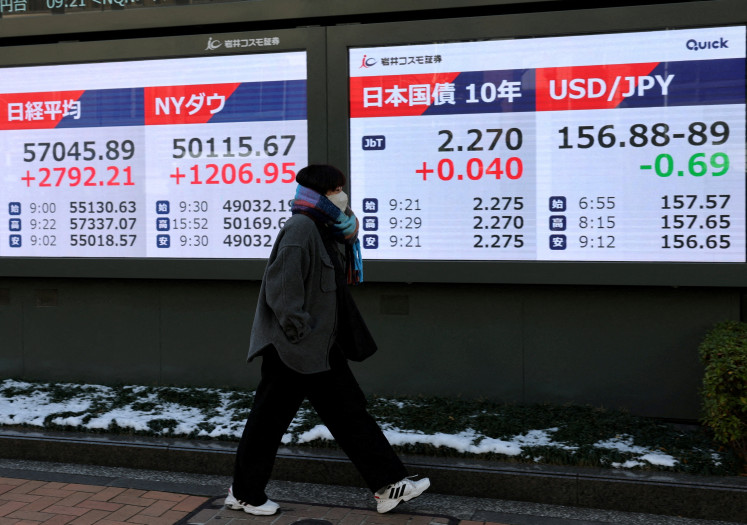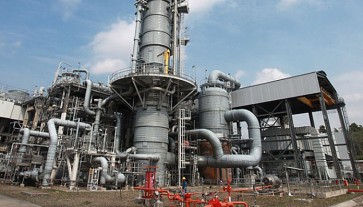Popular Reads
Top Results
Can't find what you're looking for?
View all search resultsPopular Reads
Top Results
Can't find what you're looking for?
View all search resultsNavigating new energy directions: Security versus sustainability
The challenge for Prabowo’s administration is determining how to transition away from coal without disrupting energy security.
Change text size
Gift Premium Articles
to Anyone
I
ndonesia stands at a crossroads in its energy policy as President Prabowo Subianto takes office. The country faces the twin challenges of ensuring energy security while navigating an inevitable transition toward cleaner energy sources. Given Indonesia’s historical reliance on fossil fuels and its aspirations for economic growth, achieving this balance will require strategic policies that integrate market incentives, state intervention and global energy trends.
Building on this history, Indonesia's energy sector has relied on abundant natural resources. The oil boom of the 1970s and 1980s made the country a major exporter, but mismanagement and declining reserves led to its shift to a net importer by 2004, raising concerns over energy security. A similar decline is evident in natural gas, with falling production and rising consumption. While projects like Masela and Tangguh liquified natural gas (LNG) may slow this trend, immediate policy action and strategic investment are necessary to stabilize the sector and prevent another energy crisis.
At the same time, coal continues to dominate Indonesia’s energy landscape, accounting for over 60 percent of electricity generation. While widely criticized in global climate discussions, coal remains crucial for economic development. The challenge for Prabowo’s administration is determining how to transition away from coal without disrupting energy security. Emerging technologies such as carbon capture and storage (CCS), along with high-efficiency, low-emission coal-fired power plants, present opportunities to mitigate coal’s environmental impact while maintaining its economic benefits.
In addition to coal’s dominance, another pressing concern is Indonesia’s reliance on energy subsidies and fuel imports. Despite its wealth of natural resources, the country spends billions annually on fuel subsidies, including imported fuel, distorting market prices, increasing vulnerability to external pressures and discouraging investment in renewables. These ongoing practices expose inefficiencies in downstream oil and gas management. Given these challenges, the new government must reassess the sustainability of subsidies and redirect fiscal resources toward clean energy initiatives and long-term energy security.
Indonesia’s energy sector also faces structural challenges in balancing supply and demand. While significant resources exist in the eastern part of the country, the highest demand is concentrated in the western regions, particularly Java Island, creating logistical and infrastructure constraints. Addressing these challenges requires a comprehensive approach that integrates energy distribution planning, investment in storage solutions and optimization of the transmission network. Without strategic intervention, Indonesia risks deepening its reliance on fossil fuel imports rather than leveraging its domestic potential effectively.
These inefficiencies also extend to the electricity sector, which reflects broader policy issues in Indonesia’s energy framework. The heavy reliance on coal has led to overcapacity, with state-owned electricity company PLN struggling to manage excess supply. Additionally, the aggressive expansion of coal-fired power plants under the 35,000 megawatts program, initiated in the era of former president Joko “Jokowi” Widodo, has resulted in financial burdens and stranded assets. To make matters worse, electricity subsidies are often mistargeted, disproportionately benefiting middle- and upper-income households rather than those who need them most. A shift in subsidy distribution toward targeted social programs and renewable energy investments would help balance both fiscal and environmental concerns.
Despite these challenges, Indonesia possesses immense potential for clean energy, particularly solar, hydro, wind and geothermal. However, regulatory hurdles and pricing structures continue to favor fossil fuels, slowing down the adoption of renewables. To unlock this potential, structural reforms such as improved feed-in tariffs, streamlined permitting processes and better grid integration must be implemented. However, these reforms must also address the long-standing issue of rent-seeking behavior within the energy sector. Energy firms, particularly in oil, gas and coal, have historically benefited from political patronage and preferential licensing, leading to inefficiencies, corruption and poor resource allocation. Without tackling these governance issues, any energy reform risks being undermined by entrenched interests.


















